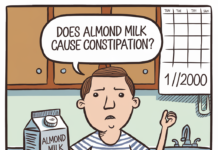Have you ever experienced a tingling sensation in your balls and wondered, why do my balls tingle? While it may seem like an unusual occurrence, this feeling is relatively common and often harmless. In this article, we will explore the causes behind this sensation, what it could indicate about your health, and tips to manage it. Whether it’s a temporary irritation or a sign of something more serious, we’ll provide insight into what’s going on down there and how to address it.
What is the Tingly Sensation in Your Balls?
The tingling in your balls, commonly known as paresthesia, occurs when the nerves in your testicles or scrotum are temporarily stimulated or compressed. This can result in a mild to intense sensation of pins and needles, which may vary in frequency and intensity.
Several factors can contribute to this sensation:
- Nerve Compression: Sitting for long periods or wearing tight clothing can compress the nerves in the area, causing a tingling feeling.
- Blood Flow Issues: Poor circulation or restricted blood flow to the groin can cause your balls to tingle.
- Infections or Inflammation: Conditions like epididymitis (inflammation of the epididymis) or sexually transmitted infections (STIs) might cause tingling.
- Physical Activity: Vigorous physical activities, such as cycling or running, can lead to temporary tingling from pressure on the nerves.
What Causes My Balls to Tingle?
Understanding the causes behind the sensation of tingling in your testicles can help you determine whether it’s something harmless or an indication of an underlying issue. Here are some common causes:
- Nerve Impingement: When nerves are pinched or irritated, the tingling sensation may be felt in your testicles. This could be due to posture, sleeping positions, or sitting too long.
- Testicular Torsion: A more serious condition, testicular torsion occurs when the spermatic cord twists, cutting off blood flow to the testicle. This can cause severe pain and tingling. It requires immediate medical attention.
- Infection or Inflammation: Any infection or inflammation, such as a urinary tract infection (UTI) or an STI, can cause discomfort and tingling in the groin area.
- Hormonal Changes: Fluctuations in testosterone levels can also result in sensations of tingling or discomfort.
Benefits or Importance of Understanding Why Your Balls Tingle
Knowing why your balls tingle can help you identify whether the sensation is benign or requires further attention. Here are some key points:
- Prevention of Serious Issues: By recognizing the symptoms of conditions like testicular torsion or infection, you can seek timely treatment.
- Better Body Awareness: Understanding these sensations can help you be more aware of your body’s health and seek professional help when needed.
- Comfort and Relief: Knowing how to manage nerve compression or blood flow restrictions can reduce discomfort and prevent recurrence.
Tips to Relieve the Tingling Sensation
If you’re experiencing tingling in your testicles, there are several simple remedies you can try to alleviate the discomfort:
- Adjust Your Sitting Posture: Avoid sitting for extended periods and change positions regularly. Try sitting on a cushioned surface to reduce pressure on your groin area.
- Wear Loose-Fitting Clothing: Tight clothing can restrict blood flow and irritate nerves. Opt for boxers or loose-fitting underwear for better comfort.
- Practice Stress-Relief Techniques: Stress and anxiety can contribute to muscle tension, which may exacerbate the tingling sensation. Engage in relaxation exercises such as deep breathing or meditation.
- Take Breaks from Physical Activity: If your tingling is due to physical activity, consider taking regular breaks or using a cushioned seat while cycling.
Conclusion:
In most cases, a tingling sensation in your balls is nothing to worry about and can be attributed to temporary nerve compression, poor circulation, or physical activity. However, if the tingling is persistent or accompanied by other symptoms such as pain or swelling, it’s important to consult with a healthcare provider. By understanding the causes of this sensation, you can take steps to prevent and manage it for greater comfort.
If you found this article helpful, leave a comment below and share your experiences or questions. Stay informed about your health and learn more on orangelifemagazine.com .




